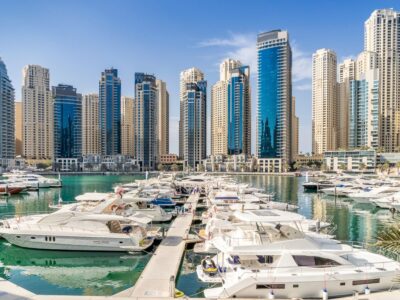In Europe, the Middle East and Africa (EMEA), family offices are ahead of their global counterparts on environmental, social and governance (ESG) investing, according to new data from Goldman Sachs.
For ESG investing, the EMEA region is the most focused on green investment, with 80 percent of regional respondents saying they are “extremely focused on implementing ESG principles” and the region reporting the lowest total (32 percent) of family offices that haven’t begun implementing ESG strategies in their portfolios.
However, with bitcoin and cryptocurrency popularity growing, investors, especially those who have brought ESG considerations into sharper focus, are increasingly critical of the environmental impacts of bitcoin mining, the Goldman Sachs report found.
Globally, 50 percent indicated they’d be interested in exposing themselves to cryptocurrency in the future, but in the EMEA region, 57 percent of respondents said they were not investing in digital currencies and would not be interested in investing in any form of cryptocurrency, with the most often reason (48 percent) cited that they do not currently believe cryptocurrency is a good store of value. Only 8 percent of EMEA respondents said they are currently investing in cryptocurrency.
“Outside of cryptocurrencies, we expect to see family offices monitoring the evolution and potential use cases for other digital assets and blockchain technology more broadly for future investment opportunities,” the Goldman Sachs analysts wrote.
 Only 8 percent of EMEA respondents said they are currently investing in cryptocurrency.
Only 8 percent of EMEA respondents said they are currently investing in cryptocurrency.
For those seeking investment, family offices are often attractive because they have long investing time horizons; their capital tends to be flexible and can be invested across asset classes, strategies and geographies; and the decision-making process is often unique and falls within a lean organisational structure.
“Many entrepreneurs identify with and therefore feel comfortable aligning with family offices,” the report read.
Family offices tend to implement aggressive asset allocation strategies, even more so than taxable ultra-high-net-worth individuals, who already have a higher allocation to equity and alternative asset classes, and a smaller allocation to fixed income.
Goldman Sachs analysts said they also saw family offices investing in operation companies to defend against a potential inflation increase to gain greater access to cash-generating assets. For this group, real estate is one appealing asset, especially for those thinking about sustained low rates.
In EMEA, 70 percent of survey respondents said they were actively contemplating a prolonged low-rate environment, with 51 percent primarily thinking about increasing inflation, and 35 percent thinking about currency debasement. Of respondents who are focused on low rates, 44 percent reported they are looking to invest in operating businesses. Increasingly, families are showing an appetite to outright acquire, or hold majority stakes in, businesses with stable cash flow that can fund growth and future acquisitions.
Family offices’ asset allocation tends to have outsized exposure to alternative investments, reflecting higher return hurdles, patient capital pools and professional diligence capabilities, the report found.
Private equity, real estate, private credit
On average, portfolios have a 45 percent combined allocation of private equity, real estate, private credit and hedge funds, according to the Goldman Sachs survey that polled 150 family offices across the world. Conversely, family offices on average allocate 19 percent of their portfolios to cash and fixed income.
Nearly 100 percent of survey respondents invest in private equity, and analysts wrote that they see a focus on emerging and disruptive trends, including biotech, food technology and energy transition.
In EMEA, family offices primarily approach private equity investing through managers, with 62 percent of family offices saying they take this approach, much higher than their global counterparts. However, EMEA offices also tend to be less likely to invest directly in private equity at 35 percent of respondents saying they take this route, venture capital and private credit compared to their American counterparts.
For the private credit segment in EMEA, 50 percent said they go through managers, while only 14 percent invest directly and 36 percent – the highest globally – said they do not invest in the category at all.
In private real estate investment, 22 percent of EMEA respondents said they go through managers, with 61 percent investing directly, on par with global averages, and 17 percent said they do not invest in the private real estate realm.
Globally, 40 percent of respondents said they were interested in special purpose acquisition companies (SPACs) and in private investments in public equity.








